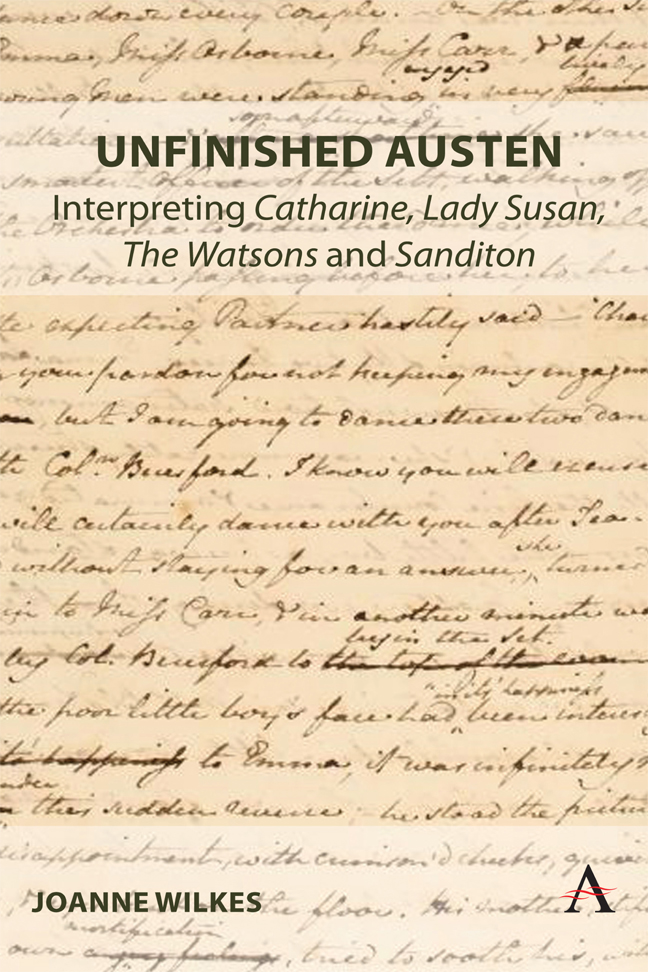 Unfinished Austen
Unfinished Austen 4 - The Watsons
Published online by Cambridge University Press: 29 February 2024
Summary
As noted in the Introduction, there is doubt about the period of composition of The Watsons, but evidence points to a date of around 1804. Compared to those of ‘Catharine’ and Lady Susan, the manuscript is more inchoate, without pagination or chapter divisions, nor clear paragraphing. The number of alterations, too, is considerable, with many additions and deletions. It is worth giving detailed attention to these revisions, as they point to the kinds of emphases Austen was working towards in her style – especially her creation of mood and atmosphere – as well as in her characterization and the dynamics among characters. The Watsons is very much a work in progress.
The courtship plot will also be a prominent motif in discussing The Watsons, because there is a mismatch between the heroine's circumstances here and the kind of story Austen deploys in her published work which relies on such a convention. This contrast emerges especially when this fragment is compared with Pride and Prejudice.
The chapter will explore too the completions of the text which date from 1850 right up to 2018 and which are plentiful but – I will argue – often unconvincing. An exception is the play by Laura Wade from 2018, because it tackles head-on the frustrations involved in ending an unfinished text in a plausible but satisfying way. Relevant to these completions is the temptation to follow what were taken as Jane Austen's intentions for the story. These came from Austen-Leigh's summary of the proposed plot developments, deriving from Cassandra Austen. Heroine Emma Watson was eventually to marry clergyman Mr Howard, but he would have a serious rival in local aristocrat Lord Osborne, while Lord Osborne's widowed mother would complicate matters through her own feelings for Howard. Before the happy ending, too, Emma's father, an invalid clergyman, was to die and leave her dependent for a home on her hard-hearted older brother Robert and his status-obsessed wife Jane. Although the outline comes from family lore rather than from any writings of Jane Austen herself, the fragment as it is contains the beginnings of all these plot elements.
- Type
- Chapter
- Information
- Unfinished AustenInterpreting <i>Catharine</i>, <i>Lady Susan</i>, <i>The Watsons</i> and <i>Sanditon</i>, pp. 53 - 82Publisher: Anthem PressPrint publication year: 2023


